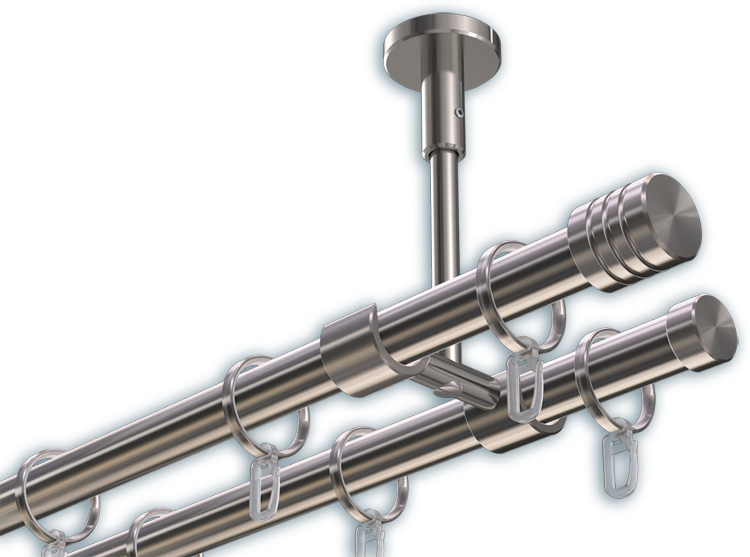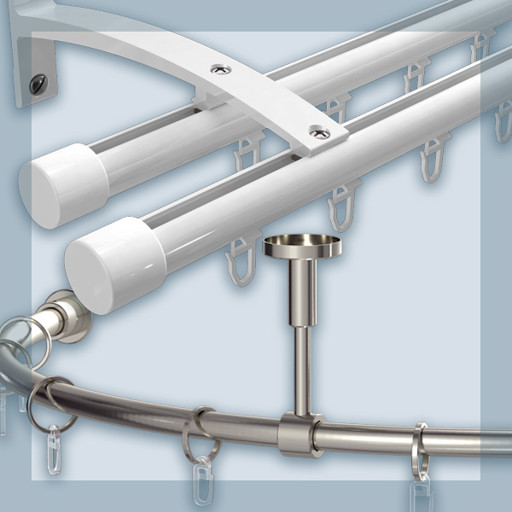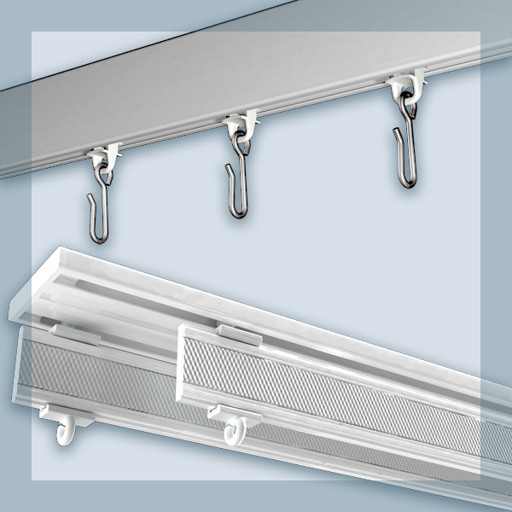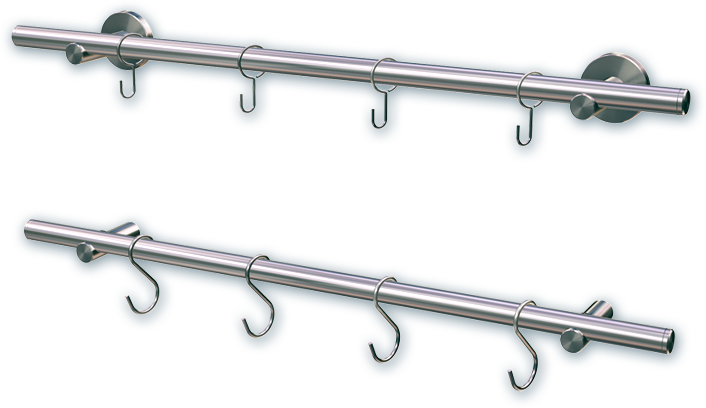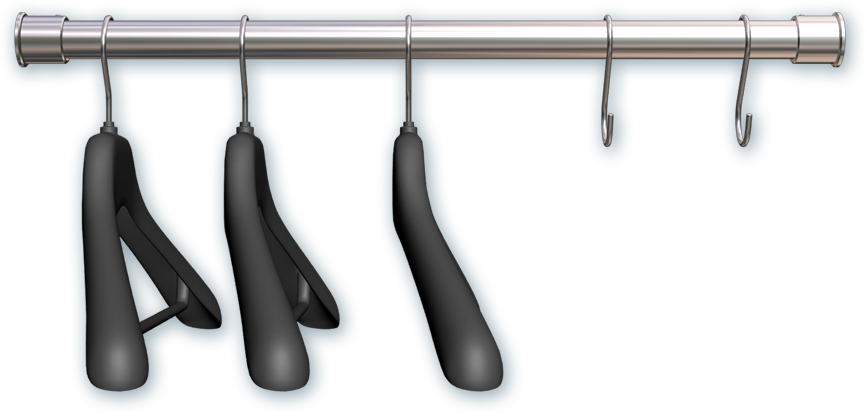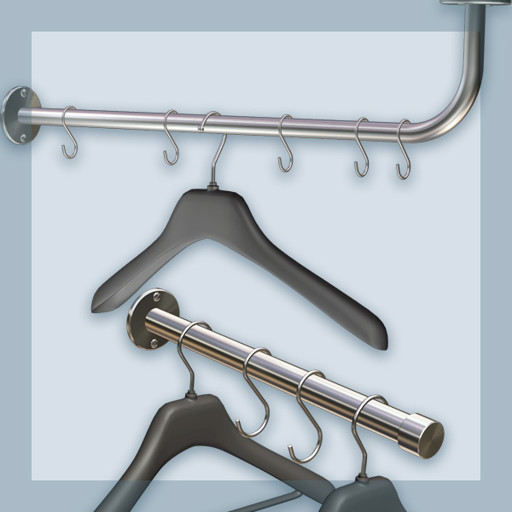Data Protection - Your Data is Safe
Privacy Policy
We highly appreciate your interest in our company. Privacy has a particularly high priority for the management of Stahldeko-Metalldesign. Use of the Stahldeko-Metalldesign website is generally possible without providing personal data. However, if an individual wants to use special services from our company via our website, processing of personal data might be necessary. If processing of personal data is required and there is no legal basis for such processing, we always seek the consent of the individual.
The processing of personal data, such as the name, address, email address, or telephone number of an individual, is always in line with the General Data Protection Regulation (GDPR), and in accordance with country-specific data protection regulations applicable to Stahldeko-Metalldesign. Through this privacy policy, our company aims to inform the public about the nature, scope, and purpose of the personal data we collect, use, and process. Furthermore, individuals are informed about their rights through this privacy policy.
Stahldeko-Metalldesign, as the data controller, has implemented numerous technical and organizational measures to ensure as complete protection as possible for personal data processed via this website. Nevertheless, internet-based data transfers can generally have security gaps, ensuring absolute protection is not possible. For this reason, individuals are free to transmit personal data to us through alternative means, for example, by phone.
1. Definitions
The Stahldeko-Metalldesign privacy policy is based on terms defined by European directives and regulations when enacting the General Data Protection Regulation (GDPR). Our privacy policy is intended to be easily readable and understandable for the public, as well as our customers and business partners. To ensure this, we would like to explain the terms used in advance.
In this privacy policy, we use, among other things, the following terms:
-
a) Personal Data
Personal data refers to all information related to an identified or identifiable natural person (hereinafter "data subject"). A natural person is considered identifiable, directly or indirectly, in particular by reference to an identifier such as a name, an identification number, location data, an online identifier or one or more factors specific to the physical, physiological, genetic, mental, economic, cultural or social identity of that natural person.
-
b) Data Subject
A data subject is any identified or identifiable natural person whose personal data is processed by the data controller.
-
c) Processing
Processing means any operation or set of operations, whether or not by automated means, related to personal data such as collection, recording, organization, structuring, storage, adaptation or alteration, retrieval, consultation, use, disclosure by transmission, dissemination, or otherwise making available, alignment or combination, restriction, deletion or destruction.
-
d) Restriction of Processing
Restriction of processing is the marking of stored personal data with the aim of limiting its future processing.
-
e) Profiling
Profiling means any form of automated processing of personal data consisting of the use of personal data to evaluate certain personal aspects relating to a natural person, in particular to analyze or predict aspects concerning that natural person's performance at work, economic situation, health, personal preferences, interests, reliability, behavior, location or movements.
-
f) Pseudonymization
Pseudonymization is the processing of personal data in such a manner that the personal data can no longer be attributed to a specific data subject without the use of additional information, provided that such additional information is kept separately and is subject to technical and organizational measures to ensure that the personal data are not attributed to an identified or identifiable natural person.
-
g) Controller or Data Controller
The controller or data controller is the natural or legal person, public authority, agency or other body which, alone or jointly with others, determines the purposes and means of the processing of personal data. Where the purposes and means of such processing are determined by Union or Member State law, the controller or the specific criteria for its nomination may be provided for by Union or Member State law.
-
h) Processor
Processor is a natural or legal person, public authority, agency or other body which processes personal data on behalf of the controller.
-
i) Recipient
Recipient is a natural or legal person, public authority, agency or another body, to which the personal data are disclosed, whether a third party or not. However, public authorities which may receive personal data in the framework of a particular inquiry in accordance with Union or Member State law shall not be regarded as recipients.
-
j) Third Party
A third party is a natural or legal person, public authority, agency or body other than the data subject, controller, processor, and persons who, under the direct authority of the controller or processor, are authorized to process personal data.
-
k) Consent
Consent of the data subject is any freely given, specific, informed and unambiguous indication of the data subject's wishes by which he or she, by a statement or by a clear affirmative action, signifies agreement to the processing of personal data relating to him or her.
2. Name and Address of the Data Controller
The Data Controller as defined by the General Data Protection Regulation (GDPR), other data protection laws applicable in European Union member states, and other provisions related to data protection is:
Stahldeko-Metalldesign
Alexander Veselov
Waldstr. 14
91448 Emskirchen
Germany
Phone: +49 9104 8238187
Email: info@stahldeko.de
Website: www.stahldeko-shop.com
3. Cookies
The Stahldeko-Metalldesign website uses cookies. Cookies are text files that are stored and saved via an internet browser on a computer system.
Many websites and servers use cookies. Many cookies contain a so-called cookie ID, which is a unique identifier of the cookie. It consists of a string that allows websites and servers to associate the specific internet browser in which the cookie was stored. This allows visited websites and servers to differentiate the individual browser of the affected person from other internet browsers containing other cookies. A specific internet browser can be recognized and identified via the unique cookie ID.
Through the use of cookies, Stahldeko-Metalldesign can provide more user-friendly services that would not be possible without setting cookies.
By using cookies, the information and offers on our website can be optimized for the user. As mentioned earlier, cookies allow us to recognize our website users. The purpose of this recognition is to make it easier for users to use our website. For example, the user of a website using cookies does not need to re-enter their access data each time they visit the website because it's done by the website and the cookie stored on the user's computer system. Another example is the cookie of a shopping cart in an online shop. The online shop remembers the items a customer placed in the virtual shopping cart through a cookie.
The affected person can prevent the setting of cookies by our website at any time using the corresponding setting of the internet browser used, and thus permanently object to the setting of cookies. Furthermore, already set cookies can be deleted at any time via an internet browser or other software programs. This is possible in all common internet browsers. If the affected person deactivates the setting of cookies in the used internet browser, not all functions of our website may be fully usable.
4. Collection of General Data and Information
With each visit to the Stahldeko-Metalldesign website by an affected person or an automated system, a variety of general data and information is collected. This general data and information are stored in the server's log files. It can capture (1) browser types and versions used, (2) the operating system used by the accessing system, (3) the website from which an accessing system comes to our website (referrer), (4) the sub-pages directed to our website via an accessing system, (5) the date and time of access to the website, (6) an Internet Protocol address (IP address), (7) the internet service provider of the accessing system, and (8) other similar data and information used for protection in case of attacks on our IT systems.
Stahldeko-Metalldesign does not draw any conclusions about the affected person when using this general data and information. This information is rather needed to (1) deliver our website's content correctly, (2) optimize the content of our website and its advertisement, (3) ensure the long-term functionality of our IT systems and website technology, and (4) provide law enforcement authorities with the necessary information for prosecution in case of a cyber attack. The anonymously collected data and information are therefore statistically evaluated and further analyzed with the objective of increasing the data protection and data security in our company, to ensure an optimal protection level for the personal data processed by us. The anonymous data from the server log files are stored separately from all personal data provided by an affected person.
5. Registration on our Website
The data subject has the option to register on the website of the data controller by providing personal information. The specific personal data transmitted to the data controller is determined by the respective input form used for registration. The personal data entered by the data subject are collected and stored exclusively for internal use by the data controller and for their own purposes. The data controller may request the transfer to one or more data processors, such as a parcel service provider, who also uses the personal data exclusively for an internal use attributed to the data controller.
By registering on the website of the data controller, the IP address assigned by the Internet Service Provider (ISP) of the data subject, the date, and the time of registration are also stored. This data is stored against the background that only in this way can the misuse of our services be prevented, and, if necessary, this data makes it possible to clarify crimes committed. In this respect, the storage of this data is necessary to secure the data controller. This data is not passed on to third parties unless there is a legal obligation to pass on the data, or if the transfer serves the aim of criminal prosecution.
The registration of the data subject with the voluntary provision of personal data serves the data controller to offer the data subject content or services that may only be offered to registered users due to the nature of the matter in question. Registered individuals are free to change the personal data specified during registration at any time or to have them completely deleted from the data stock of the data controller.
The data controller shall, at any time, provide information upon request to each data subject as to which personal data are stored about the data subject. Furthermore, the data controller shall correct or delete personal data at the request or indication of the data subject, insofar as there are no statutory storage obligations. The entirety of the data controller's employees and a named data protection officer in this privacy statement are available to the data subject in this respect as contact persons.
6. Contact via the Website
The Stahldeko-Metalldesign website, due to legal regulations, contains information that allows for a quick electronic contact to our company, as well as direct communication with us, which also includes a general address for electronic mail (e-mail address). If a data subject contacts the data controller by e-mail or via a contact form, the personal data transmitted by the data subject are automatically stored. Such personal data transmitted on a voluntary basis by a data subject to the data controller is stored for the purpose of processing or contacting the data subject. There is no transfer of this personal data to third parties.
7. Comment Function in the Blog on the Website
Stahldeko-Metalldesign offers users the opportunity to leave individual comments on individual blog posts on a blog located on the website of the data controller. A blog is a portal, usually publicly visible on a website, in which one or more persons, called bloggers or web bloggers, can post articles or write down thoughts in so-called blog posts. Blog posts can typically be commented on by third parties.
When a data subject leaves a comment on the blog published on this website, in addition to the comments left by the data subject, information about the time the comment was entered and the user name (pseudonym) chosen by the data subject will also be stored and published. Furthermore, the IP address assigned by the Internet Service Provider (ISP) of the data subject is also logged. This storage of the IP address is done for security reasons and in case the data subject violates the rights of third parties or posts illegal content with a given comment. The storage of this personal data is, therefore, in the interest of the data controller, so that they could exonerate themselves in the event of a legal violation. The collected personal data will not be passed on to third parties unless such a transfer is legally required or serves the legal defense of the data controller.
8. Routine Deletion and Blocking of Personal Data
The data controller processes and stores the personal data of the data subject only for the period necessary to achieve the purpose of storage or as provided by the European directive and regulation maker or another legislator in laws or regulations to which the data controller is subject.
If the storage purpose is omitted or a storage period prescribed by the European directive and regulation maker or another competent legislator expires, the personal data will be routinely blocked or deleted in accordance with legal requirements.
9. Rights of the Data Subject
-
a) Right to Confirmation
Every data subject has the right granted by the European Directive and Regulation maker to request confirmation from the data controller as to whether personal data concerning them is being processed. If a data subject wishes to exercise this right of confirmation, they can contact our data protection officer or another employee of the data controller at any time.
-
b) Right to Information
Every data subject affected by the processing of personal data has the right, granted by the European Directive and Regulation maker, to obtain at any time, free of charge, information about the personal data stored about them and a copy of this information from the data controller. Furthermore, the European Directive and Regulation maker has granted the data subject access to the following information:
- The purposes of the processing
- The categories of personal data that are processed
- The recipients or categories of recipients to whom the personal data have been disclosed or are still being disclosed, especially in third countries or international organizations
- Where possible, the planned duration for which the personal data will be stored, or, if this is not possible, the criteria for determining this duration
- The existence of a right to rectification or erasure of personal data concerning them, or to restriction of processing by the controller, or a right to object to such processing
- The existence of a right to lodge a complaint with a supervisory authority
- If the personal data is not collected from the data subject: All available information about the source of the data
- The existence of automated decision-making, including profiling in accordance with Article 22(1) and (4) of the GDPR, and — in these cases at least — meaningful information about the logic involved and the scope and intended effects of such processing on the data subject
Furthermore, the data subject has the right to know whether personal data has been transmitted to a third country or an international organization. If this is the case, the data subject also has the right to obtain information about the appropriate safeguards related to the transfer.
If a data subject wishes to exercise this right to information, they can contact our data protection officer or another employee of the data controller at any time.
-
c) Right to Rectification
Every data subject affected by the processing of personal data has the right, granted by the European Directive and Regulation maker, to demand the immediate rectification of inaccurate personal data concerning them. Moreover, considering the purposes of the processing, the data subject has the right to request the completion of incomplete personal data, including by means of providing a supplementary statement.
If a data subject wishes to exercise this right to rectification, they can contact our data protection officer or another employee of the data controller at any time.
-
d) Right to Deletion (Right to be Forgotten)
Every individual subject to the processing of personal data has the right, granted by the European Directive and Regulation legislator, to demand the data controller to delete their personal data without delay if one of the following reasons applies and as long as processing is not necessary:
- The personal data were collected or otherwise processed for purposes for which they are no longer necessary.
- The data subject revokes their consent on which the processing was based according to Article 6(1)(a) GDPR or Article 9(2)(a) GDPR, and there's no other legal basis for processing.
- The data subject objects to the processing pursuant to Article 21(1) GDPR, and there are no overriding legitimate grounds for the processing, or the data subject objects to the processing pursuant to Article 21(2) GDPR.
- The personal data have been processed unlawfully.
- The deletion of personal data is necessary to fulfill a legal obligation under EU law or the law of member states to which the data controller is subject.
- The personal data was collected in relation to the offered services of the information society according to Article 8(1) GDPR.
If one of the aforementioned reasons applies and a data subject wishes to request the deletion of personal data stored by Stahldeko-Metalldesign, they can do so at any time by contacting our Data Protection Officer or another employee of the data controller. The Data Protection Officer of Stahldeko-Metalldesign or another employee will ensure that the request for deletion is promptly fulfilled.
If the personal data has been made public by Stahldeko-Metalldesign and our company, as the controller, is obliged to delete the personal data pursuant to Article 17(1) GDPR, Stahldeko-Metalldesign will take appropriate measures, considering available technology and implementation costs, to inform other data controllers processing the published personal data that the data subject has requested deletion of all links to this personal data or of copies or replications of this personal data, as long as processing is not necessary. The Data Protection Officer of Stahldeko-Metalldesign or another employee will arrange the necessary steps in individual cases.
-
e) Right to Restriction of Processing
Every individual subject to the processing of personal data has the right, granted by the European Directive and Regulation legislator, to demand the data controller to restrict processing if one of the following conditions applies:
- The accuracy of the personal data is contested by the data subject, for a period enabling the controller to verify the accuracy of the personal data.
- The processing is unlawful, the data subject opposes the erasure of the personal data and requests instead the restriction of their use.
- The controller no longer needs the personal data for the purposes of processing, but they are required by the data subject for the establishment, exercise or defense of legal claims.
- The data subject has objected to processing pursuant to Article 21(1) GDPR, and it has not yet been determined whether the legitimate grounds of the controller override those of the data subject.
If one of the aforementioned conditions is met and a data subject wishes to request the restriction of personal data stored by Stahldeko-Metalldesign, they can do so at any time by contacting our Data Protection Officer or another employee of the data controller. The Data Protection Officer of Stahldeko-Metalldesign or another employee will arrange for the processing to be restricted.
-
f) Right to Data Portability
Every individual affected by the processing of personal data has the right, granted by the European directive and ordinance maker, to receive their personal data, which has been provided to a controller, in a structured, common, and machine-readable format. They also have the right to transmit this data to another controller without hindrance from the controller to which the personal data has been provided, provided that the processing is based on consent in accordance with Art. 6(1)(a) GDPR or Art. 9(2)(a) GDPR or on a contract in accordance with Art. 6(1)(b) GDPR and the processing is carried out using automated means, unless the processing is necessary for the performance of a task carried out in the public interest or in the exercise of official authority vested in the controller.
Furthermore, when exercising their right to data portability in accordance with Art. 20(1) GDPR, the individual has the right to have the personal data transmitted directly from one controller to another, where technically feasible and when doing so does not adversely affect the rights and freedoms of others.
To assert the right to data portability, the individual can at any time contact the data protection officer appointed by Stahldeko-Metalldesign or another employee.
-
g) Right to Object
Every individual affected by the processing of personal data has the right, granted by the European directive and ordinance maker, to object at any time, for reasons arising from their particular situation, to the processing of personal data concerning them under Art. 6(1)(e) or (f) GDPR. This also applies to profiling based on these provisions.
Stahldeko-Metalldesign will no longer process the personal data in the event of the objection, unless we can demonstrate compelling legitimate grounds for the processing that outweigh the individual's interests, rights, and freedoms, or the processing is for the purpose of asserting, exercising, or defending legal claims.
If Stahldeko-Metalldesign processes personal data for direct marketing purposes, the individual has the right to object at any time to the processing of personal data for such advertising. This also applies to profiling insofar as it is related to such direct advertising. If the individual objects to Stahldeko-Metalldesign processing for direct marketing purposes, Stahldeko-Metalldesign will no longer process the personal data for these purposes.
Furthermore, the individual has the right, for reasons arising from their particular situation, to object to the processing of personal data concerning them by Stahldeko-Metalldesign for scientific or historical research purposes or for statistical purposes in accordance with Art. 89(1) GDPR, unless such processing is necessary for the performance of a task carried out in the public interest.
To exercise the right to object, the individual can directly contact the data protection officer of Stahldeko-Metalldesign or another employee. The individual is also free, in connection with the use of information society services - regardless of Directive 2002/58/EC - to exercise their right of objection by means of automated procedures using technical specifications.
-
h) Automated Individual Decision-making, Including Profiling
Every individual affected by the processing of personal data has the right, granted by the European directive and ordinance maker, not to be subject to a decision based solely on automated processing, including profiling, which produces legal effects concerning them or similarly significantly affects them, provided that the decision (1) is not necessary for the conclusion or performance of a contract between the individual and the controller, or (2) is permitted by EU or Member State law to which the controller is subject and which also lays down suitable measures to safeguard the individual's rights and freedoms and legitimate interests, or (3) is based on the individual's explicit consent.
If the decision (1) is necessary for the conclusion or performance of a contract between the individual and the controller or (2) is based on the individual's explicit consent, Stahldeko-Metalldesign will implement suitable measures to safeguard the individual's rights and freedoms and legitimate interests, at least the right to obtain human intervention on the part of the controller, to express their point of view and to contest the decision.
If the individual wishes to exercise their rights relating to automated individual decision-making, they can at any time contact our data protection officer or another employee of the controller.
-
i) Right to withdraw data protection consent
Every individual subject to the processing of personal data has the right, granted by the European directive and regulation legislator, to withdraw consent for the processing of personal data at any time.
If the individual wishes to exercise their right to withdraw consent, they can contact our Data Protection Officer or another employee responsible for processing at any time.
10. Data Protection Regulations for the Use and Application of Facebook
The controller has integrated components of the Facebook company on this website. Facebook is a social network.
A social network is an online social hub operated on the internet, an online community, which generally allows users to communicate with each other and interact in a virtual space. A social network can serve as a platform for the exchange of opinions and experiences or allows the online community to provide personal or business-related information. Among other things, Facebook allows users of the social network to create private profiles, upload photos, and connect through friend requests.
The operator company of Facebook is Facebook, Inc., 1 Hacker Way, Menlo Park, CA 94025, USA. The controller for the processing of personal data, if an affected person lives outside the USA or Canada, is Facebook Ireland Ltd., 4 Grand Canal Square, Grand Canal Harbour, Dublin 2, Ireland.
With each visit to one of the individual pages of this website, which is operated by the controller and on which a Facebook component (Facebook plug-in) has been integrated, the web browser on the information technology system of the affected person is automatically prompted by the respective Facebook component to download a display of the corresponding Facebook component. An overview of all Facebook plugins can be accessed at https://developers.facebook.com/docs/plugins/?locale=en_US. As part of this technical process, Facebook becomes aware of which specific sub-page of our website is visited by the affected person.
If the affected person is logged into Facebook at the same time, Facebook recognizes each time our website is accessed by the affected person and throughout the entire duration of their stay on our website, which specific sub-page of our website the affected person visits. This information is collected by the Facebook component and associated with the respective Facebook account of the affected person by Facebook. If the affected person clicks on one of the Facebook buttons integrated on our website, such as the "Like" button, or submits a comment, Facebook assigns this information to the personal Facebook user account of the affected person and stores this personal data.
Facebook always receives information via the Facebook component that the affected person has visited our website if the affected person is logged into Facebook at the same time as accessing our website; this takes place regardless of whether the affected person clicks on the Facebook component or not. If such a transfer of this information to Facebook is not wanted by the affected person, they can prevent this by logging out of their Facebook account before accessing our website.
The data policy published by Facebook, which is available at https://en-gb.facebook.com/about/privacy/, provides information on the collection, processing, and use of personal data by Facebook. Furthermore, it is explained there which settings Facebook offers to protect the privacy of the affected person. Additionally, various applications are available that make it possible to suppress data transmission to Facebook. Such applications can be used by the affected person to suppress data transmission to Facebook.
11. Data Protection Regulations for the Use and Implementation of Google Analytics (with anonymization function)
The controller has integrated the Google Analytics component (with anonymization function) on this website. Google Analytics is a web analytics service. Web analysis is the collection, gathering, and evaluation of data about the behavior of visitors to websites. A web analysis service collects data about which website an individual came from (known as referrers), which subpages of the website were accessed or how often and for what duration a subpage was viewed. Web analytics is primarily used for optimizing a website and for the cost-benefit analysis of online advertising.
The operating company of Google Analytics is Google Inc., 1600 Amphitheatre Pkwy, Mountain View, CA 94043-1351, USA.
The controller uses the "_gat._anonymizeIp" extension for web analysis through Google Analytics. By means of this extension, Google truncates and anonymizes the IP address of the internet connection of the affected person when accessing our website from a member state of the European Union or from another contracting state of the Agreement on the European Economic Area.
The purpose of the Google Analytics component is to analyze traffic patterns on our website. Among other things, Google uses the data and information obtained to evaluate the use of our website, to compile online reports for us showing the activities on our website, and to provide other services related to the use of our website.
Google Analytics places a cookie on the information technology system of the affected person. What cookies are has already been explained above. Setting the cookie allows Google to analyze the use of our website. Each time one of the pages of this website, operated by the controller and into which a Google Analytics component was integrated, is accessed, the web browser on the information technology system of the affected person is automatically prompted by the respective Google Analytics component to transmit data for online analysis to Google. As part of this technical process, Google becomes aware of personal data, such as the IP address of the affected person, which Google uses, among other things, to trace the origin of the visitors and clicks, and subsequently make commission settlements possible.
Through the cookie, personal data, e.g., the time of access, the location from which access originated, and the frequency of visits to our website by the affected person, are stored. With each visit to our website, these personal data, including the IP address of the internet connection used by the affected person, are transferred to Google in the United States of America. This personal data is stored by Google in the United States of America. Google may pass on such personal data collected through the technical process to third parties.
The affected person can prevent the setting of cookies by our website, as described above, at any time by means of a corresponding setting of the internet browser used and thus permanently object to the setting of cookies. Such a setting of the internet browser used would also prevent Google from placing a cookie on the information technology system of the affected person. Furthermore, a cookie already set by Google Analytics can be deleted at any time via the internet browser or other software programs.
Furthermore, the affected person has the option to object to the collection of data generated by Google Analytics, which is related to the use of this website, as well as the processing of this data by Google and to prevent such. To do this, the affected person must download and install a browser add-on at the link https://tools.google.com/dlpage/gaoptout. This browser add-on informs Google Analytics via JavaScript that no data and information about website visits may be transmitted to Google Analytics. Google interprets the installation of the browser add-on as an objection. If the information technology system of the affected person is deleted, formatted, or reinstalled at a later time, the affected person must reinstall the browser add-on to deactivate Google Analytics. If the browser add-on is uninstalled or deactivated by the affected person or another person within their sphere of control, there is the option to reinstall or reactivate the browser add-on.
More information and Google's current privacy policy can be accessed at https://www.google.de/intl/de/policies/privacy/ and http://www.google.com/analytics/terms/de.html. Google Analytics is explained in more detail at this link: https://www.google.com/intl/de_de/analytics/.
12. Data Protection Regulations for the Use and Implementation of Google AdWords
The controller has integrated Google AdWords on this website. Google AdWords is an online advertising service that allows advertisers to display ads in Google's search engine results and on the Google advertising network. Google AdWords allows an advertiser to predefine specific keywords by which an ad will be displayed in Google's search engine results only when the user retrieves a keyword-relevant search result. In the Google advertising network, the ads are distributed on topic-relevant websites using an automatic algorithm and considering the previously defined keywords.
The operating company of Google AdWords services is Google Inc., 1600 Amphitheatre Pkwy, Mountain View, CA 94043-1351, USA.
The purpose of Google AdWords is to promote our website by displaying interest-relevant advertising on third-party websites and in the search engine results of the search engine Google, and by displaying third-party advertisements on our website.
If an affected person arrives at our website via a Google ad, Google places a so-called conversion cookie on the information technology system of the affected person. What cookies are has already been explained above. A conversion cookie loses its validity after thirty days and is not used to identify the affected person. If the cookie has not yet expired, it can be used to trace whether certain sub-pages, such as the shopping cart from an online shop system, were called up on our website. Through the conversion cookie, both we and Google can understand whether an affected person, who arrived at our website via an AdWords ad, generated revenue, i.e., completed or canceled a product purchase.
The data collected by using the Conversion Cookie is used by Google to generate visit statistics for our website. We then use these visit statistics to determine the total number of users who were referred to us via AdWords ads, i.e., to determine the success or failure of the respective AdWords ad and to optimize our AdWords ads for the future. Neither our company nor other advertising customers of Google AdWords receive information from Google that could identify the affected person.
The Conversion Cookie is used to store personal information, such as the websites visited by the affected person. Therefore, every time you visit our website, personal data, including the IP address of the Internet connection used by the affected person, is transferred to Google in the United States of America. This personal data is stored by Google in the United States of America. Google may share this personal data collected through the technical process with third parties.
As already mentioned above, the affected person can prevent the setting of cookies by our website at any time by making appropriate settings in the Internet browser used, and thus permanently object to the setting of cookies. Such a setting of the Internet browser used would also prevent Google from placing a Conversion Cookie on the information technology system of the affected person. Furthermore, a cookie already set by Google AdWords can be deleted at any time via the Internet browser or other software programs.
Furthermore, the affected person has the option to object to interest-based advertising by Google. To do this, the affected person must access the link www.google.de/settings/ads from each of the Internet browsers they use and make the desired settings there.
More information and Google's current privacy policy can be accessed at https://www.google.de/intl/de/policies/privacy/.
13. Payment Method: Data Protection Regulations for PayPal as a Payment Method
The controller has integrated components of PayPal on this website. PayPal is an online payment service provider. Payments are processed via so-called PayPal accounts, which represent virtual private or business accounts. Furthermore, PayPal offers the option of processing virtual payments via credit cards if a user does not have a PayPal account. A PayPal account is managed via an e-mail address, so there is no traditional account number. PayPal makes it possible to initiate online payments to third parties or to receive payments. PayPal also performs fiduciary functions and offers buyer protection services.
The European operating company of PayPal is PayPal (Europe) S.à.r.l. & Cie. S.C.A., 22-24 Boulevard Royal, 2449 Luxembourg, Luxembourg.
If the affected person chooses "PayPal" as a payment option during the ordering process in our online shop, data of the affected person is automatically transmitted to PayPal. By selecting this payment option, the affected person agrees to the transfer of personal data required for payment processing.
The personal data transmitted to PayPal usually includes first name, last name, address, email address, IP address, phone number, mobile phone number, or other data necessary for payment processing. Personal data associated with the respective order are also necessary for the fulfillment of the purchase contract.
The data is transmitted for the purpose of payment processing and fraud prevention. The data controller will transmit personal data to PayPal, especially when there's a legitimate interest in the transmission. The personal data exchanged between PayPal and the data controller may be transmitted by PayPal to credit reporting agencies. This transmission aims at identity and creditworthiness checks.
PayPal may disclose personal data to affiliated companies and service providers or subcontractors, provided that this is necessary to fulfill contractual obligations or if the data is to be processed by order.
The data subject has the opportunity to withdraw consent for the handling of personal data from PayPal at any time. A revocation does not affect personal data that must be processed, used, or transmitted for (contractual) payment processing.
The current data protection provisions of PayPal can be retrieved from https://www.paypal.com/de/webapps/mpp/ua/privacy-full.
14. Legal basis for processing
Art. 6 I lit. a DS-GVO serves as the legal basis for our company when we obtain consent for a specific processing purpose. If the processing of personal data is necessary for the performance of a contract to which the data subject is a party, as is the case, for example, with processes necessary for the delivery of goods or provision of another service or consideration, then the processing is based on Art. 6 I lit. b DS-GVO. The same applies to processing operations that are necessary to carry out pre-contractual measures, for example, in the case of inquiries about our products or services. If our company is subject to a legal obligation requiring the processing of personal data, such as for tax obligations, the processing is based on Art. 6 I lit. c DS-GVO. In rare cases, the processing of personal data might be necessary to protect vital interests of the data subject or another natural person. This would be the case if, for instance, a visitor to our operations were injured and their name, age, health insurance data, or other vital information would have to be passed on to a doctor, hospital, or another third party. Then, the processing would be based on Art. 6 I lit. d DS-GVO. Lastly, processing operations could be based on Art. 6 I lit. f DS-GVO. This legal basis covers processing operations not included in any of the aforementioned legal grounds, provided the processing is necessary for the purposes of a legitimate interest pursued by our company or a third party, except where such interests are overridden by the interests or fundamental rights and freedoms of the data subject. Processing operations are particularly permissible because they have been specifically mentioned by the European legislator. He believed that a legitimate interest could be assumed if the data subject is a client of the controller (Recital 47, sentence 2, DS-GVO).
15. Legitimate interests pursued by the controller or a third party
If the processing of personal data is based on Article 6 I lit. f DS-GVO, our legitimate interest is in carrying out our business for the well-being of all our employees and our shareholders.
16. Duration for which personal data will be stored
The criterion for the duration of the storage of personal data is the respective legal retention period. After the expiration of this period, the corresponding data will be routinely deleted if they are no longer necessary for contract fulfillment or contract initiation.
17. Statutory or contractual provisions for providing personal data; necessity for the conclusion of the contract; obligation of the data subject to provide personal data; possible consequences of non-provision
We inform you that the provision of personal data is sometimes required by law (e.g., tax regulations) or may result from contractual provisions (e.g., details of the contractual partner). Sometimes, for a contract to be concluded, it may be necessary for a data subject to provide us with personal data that must subsequently be processed by us. The data subject, for instance, is obliged to provide us with personal data when our company signs a contract with them. Failure to provide personal data would mean that the contract with the person concerned could not be concluded. Before the data subject provides personal data, they must contact our data protection officer. Our data protection officer clarifies to the data subject whether the provision of personal data is legally or contractually required or necessary for the conclusion of the contract, whether there's an obligation to provide the personal data, and the consequences of non-provision of the personal data.
18. Existence of automated decision-making
As a responsible company, we refrain from automatic decision-making or profiling.

